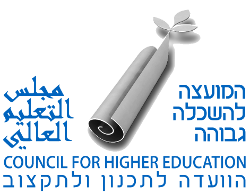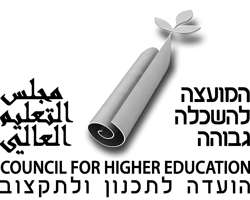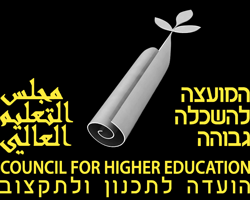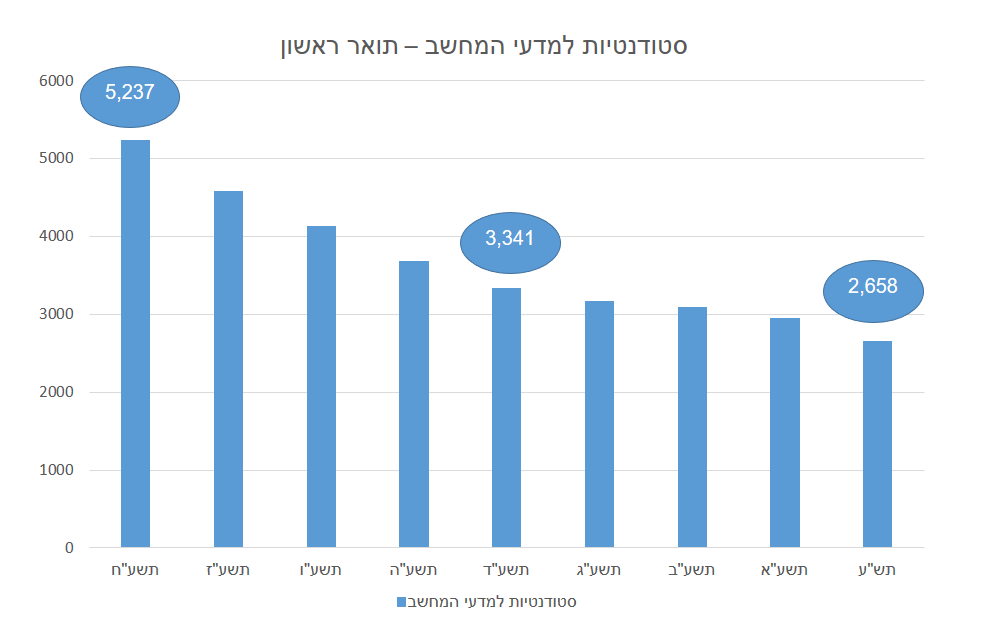Within 8 Years, the Number of Female Computer Science Students Has Been Doubled
The CHE’s new data shows than since the start of the decade the number of female computer science students in bachelor’s degree programs has doubled.
- General – Increase of approximately 100%: In the 2017/18 school year, 5,237 female students were enrolled in bachelor’s degree programs in computer science at universities and colleges, compared to only 2,658 female students in 2009/10.
- Universities – Increase of approximately 50%: In the 2009/10 school year, 1,824 female students were enrolled in bachelor’s degree programs in computer science at universities compared to 2,726 female students in 2017/18.
- Colleges – Dramatic increase of approximately 300%: In the 2009/10 academic year, 834 female students were enrolled in bachelor’s degree programs in computer science at colleges compared to 2,511 female students in 2017/18.
Chair of the PBC, Prof. Yaffa Zilbershats: “Just as the academic world was able to achieve gender equality in leading fields such as medicine and law, we are similarly determined to succeed in the high-tech fields as well.” The increase in the number of women in these tracks will enable the significant expansion of the circle of those engaged in the field, and in the coming years more women will be able to fulfil themselves and lead the Israeli market to new achievements and heights.”
Female Computer Science Students – Multiyear
| 2009/10 | 2010/11 | 2011/12 | 2012/13 | 2013/14 | 2014/15 | 2015/16 | 2016/17 | 2017/18 | |
| Total | 2,658 | 2,948 | 3,100 | 3,166 | 3,341 | 3,682 | 4,134 | 4,584 | 5,237 |
| Univ. | 1,824 | 1,717 | 1,802 | 1,728 | 1,799 | 1,916 | 2,185 | 2,369 | 2,726 |
| Colleges | 834 | 1,231 | 1,298 | 1,438 | 1,542 | 1,766 | 1,949 | 2,215 | 2,511 |
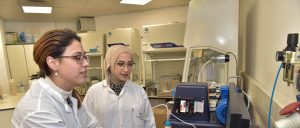
The increase in the number of female students enrolled in computer science programs is part of the PBC’s overall plan to increase the number of students in high-tech tracks, with a total multiyear budget of approximately NIS 700 million. These budgeted funds are intended, among other things, to expand learning infrastructures, incentivize institutions to hire staff members, prevent attrition, and integrate additional populations.
The PBC is encouraged by the data and intends to expand this field of studies and significantly increase the number of female students enrolled in the next few years in general and in high-tech study tracks in particular. Learning tracks in high-tech subjects include: Electrical and engineering and electronics, computers, information systems, and computer science.
Women currently make up approximately 32% of the total students in computer science and only 21% of all students in high-tech subjects (electrical and engineering and electronics, computers, information systems, and computer science).
The PBC aspires that in the coming years, women will make up 35% of all students enrolled in bachelor’s decree programs in high-tech subjects.
In this framework, the PBC will continue to incentivize institutions to accept female students into high-tech study programs where the incentives will be dedicated, among other things, to distributing scholarships and grants to female students, seminars to offer exposure to high-tech subjects, as well as to provide a support structure that includes reinforcement classes and personal accompaniment.
